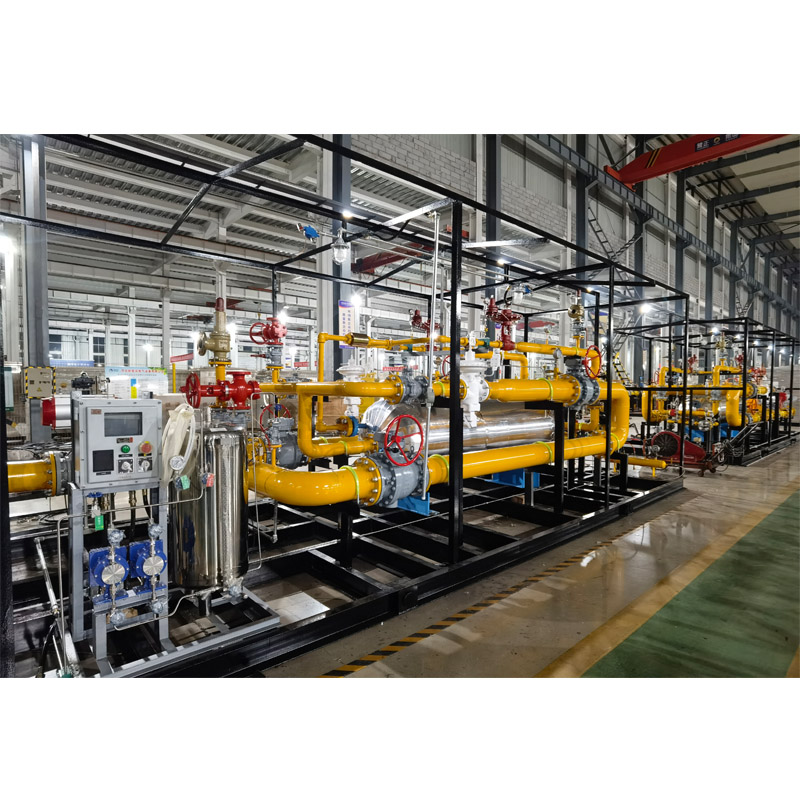
Sep . 13, 2024 03:08
Back to list
gas metering
Understanding Gas Metering A Key Component of Energy Management
Gas metering is an essential aspect of energy management that plays a crucial role in regulating the consumption of natural gas in residential, commercial, and industrial settings. Proper metering ensures accountability, accuracy, and cost-effectiveness, making it indispensable in today’s energy landscape. This article delves into the significance of gas metering, its technology, and future innovations.
At its core, gas metering involves measuring the amount of gas consumed by a user, which is vital for billing and monitoring purposes. Utility companies rely on accurate meter readings to charge customers based on actual usage rather than estimates. This not only fosters transparency in billing practices but also encourages energy efficiency among consumers. An accurate measurement of gas consumption helps in identifying usage patterns, enabling businesses and households to make informed decisions about their energy consumption.
The technology behind gas metering has evolved significantly over the years. Traditional gas meters, often mechanical devices, have gradually been replaced by advanced electronic meters. These modern devices offer enhanced accuracy and reliability, employing various technologies, including ultrasonic and diaphragm metering. Electronic meters can provide real-time data and facilitate remote monitoring, allowing utility companies to track consumption without needing a physical visit to the site. This trend towards automation is driven by the increasing demand for efficient energy management and the growing concerns about sustainability.
gas metering

Additionally, smart gas meters are becoming increasingly prevalent. These devices are a part of the broader smart grid initiative, allowing for two-way communication between the consumer and the utility provider. Smart meters offer benefits such as real-time usage data, notifications about unusual usage patterns, and the ability to forecast future consumption based on historical data. This information empowers consumers to adjust their usage, potentially leading to cost savings and reduced environmental impact.
The integration of gas metering technologies with Internet of Things (IoT) devices is also paving the way for innovative energy management solutions. With IoT capabilities, gas meters can communicate with other smart home devices, providing users with comprehensive insights into their energy consumption. For example, if a home’s thermostat detects a rise in gas consumption, it can alert the homeowner to investigate potential leaks or inefficiencies.
As we move towards a more sustainable future, the importance of gas metering will only increase. Regulatory frameworks are likely to become stricter, emphasizing the need for precise metering to ensure compliance and promote accountability among gas suppliers and consumers. Furthermore, as renewable energy sources become more integrated into the energy grid, accurate gas metering will be pivotal in managing the transition effectively.
In conclusion, gas metering is more than just a means of measuring consumption; it represents a vital component of modern energy management. The advancements in metering technology and the shift toward smart solutions signify a promising future where consumers can take control of their energy usage, leading to greater efficiency and sustainability. As the energy sector continues to evolve, the role of gas metering will remain central to our collective effort to optimize resource usage and foster a more sustainable world.
Latest news
-
Safety Valve Spring-Loaded Design Overpressure ProtectionNewsJul.25,2025
-
Precision Voltage Regulator AC5 Accuracy Grade PerformanceNewsJul.25,2025
-
Natural Gas Pressure Regulating Skid Industrial Pipeline ApplicationsNewsJul.25,2025
-
Natural Gas Filter Stainless Steel Mesh Element DesignNewsJul.25,2025
-
Gas Pressure Regulator Valve Direct-Acting Spring-Loaded DesignNewsJul.25,2025
-
Decompression Equipment Multi-Stage Heat Exchange System DesignNewsJul.25,2025

